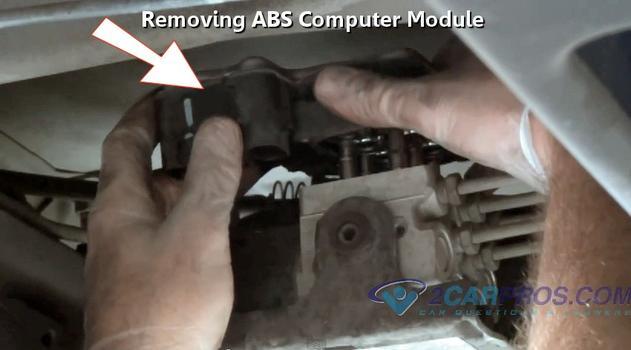

Here's my writeup to the NHTSA:
The morning of July 11, 2010, the ABS Control Module on our 2002 Windstar suffered an internal fire due to brake fluid leaked from the bad switch, resulting in a loss of proper brake function and no readings from the speedometer, tachometer, and odometer (as well as multiple warning lights). This occurred several weeks after having had the Brake Pressure Deactivation Switch recall performed (NHTSA Campaign ID 09V399000, Action Number EA08021). The local Ford dealership which had performed the initial recall work refused to repair or replace the module under the recall or as a warranty claim, stating that it was not part of the recall, nor was it apparently damaged at the time of the brake switch repair. I subsequently removed, opened and examined the control module (8/28/2010), and found blackened brake fluid present inside the module at the connector pins. I also found evidence of significant burning around the pins at the connections to the printed circuit board. This evidence included the blackened fluid, severe discoloration, and lifted traces, all of which are clearly apparent in photos of the module interior. Luckily, it appears that an internal trace burned through and interrupted the fault current prior to the failure becoming a runaway fire event. At this time the vehicle has not been repaired, and is sitting idle. I have kept the failed Control Module for examination
as necessary.
Sunday, August 29th, 2010 AT 3:14 PM



